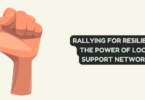
SEO
In the digital world, if your website doesn’t rank on the first page of Google results, then it might as well not exist in the first place. This is because ranking higher in search results means more visibility, more traffic, and, ultimately, more customers. This is done through Search Engine Optimization (SEO), the art and science of ranking higher in search engine results pages (SERPs). It is the most crucial aspect of digital marketing that can make or break any business.
However, with so many websites competing for attention, it can be challenging to stand out. So, in this article, we will explore six proven strategies to help your website climb the ranks and attract more organic traffic. Whether you are new to SEO or looking to improve your existing strategy, these tips will help you get your website to the top of this pyramid.
Have a Firm Grasp of SEO Practices:
To succeed in online marketing, knowing and understanding the ins and outs of SEO is essential. A solid understanding of the key SEO practices can help you drive traffic to your website and increase your online visibility.
Start by researching your competition and relevant keywords. Doing so will help you lay the foundation for your SEO strategy. Use tools such as Google AdWords Keyword Planner, Ahrefs, and SEMrush to research keywords.
It’s also important to stay up-to-date with the latest SEO trends and updates. Google’s algorithms are constantly evolving, and staying on top of these changes is essential to ensure that your website continues to rank well.
Transforming your website to meet the ever-evolving SEO practices can be overwhelming, especially for beginners. That’s why many people seek expert assistance in this area. Working with a professional, such as Psingh Marketing Consultant, can greatly impact your website’s performance and ranking. By assessing your current SEO strategy, they can assist you in enhancing your website to generate sustainable and long-lasting improvements in SEO. With their help, your website can be optimized to appear higher in search engine results, attracting more traffic and thereby improving your business.
Additionally, it is also important to measure your success and track your progress. Use tools like Google Analytics to monitor your website’s traffic, engagement, and conversation rates. This will help you identify areas for improvement and adjust your strategy accordingly.
Optimization of On-Page SEO Elements:
Optimizing your website’s on-page SEO elements can significantly improve your website’s visibility and drive traffic to your site. So, where do you start?
Firstly, start with keyword research. It is the foundation for any on-page SEO strategy. Conduct thorough research to identify the keywords your audience uses to search for your products or services.
Once you have your keywords, it’s time to optimize your title tag and meta description. Your title tag is the first thing that catches a user’s eye on search engine results pages (SERPs). Ensure that it is concise, relevant, and includes your target keywords.
Next, use header tags to organize your content and make it more user-friendly. Header tags (H1, H2, H3) provide structure to your content and help engines understand the context of your page. Use your target keywords in your headers to help search engines understand what your content is about.
And finally, optimize your content by incorporating your target keywords in a natural and organic manner. The key here is to create informative, engaging, and valuable content for your audience. Avoid stuffing your content with keywords, as this will do you more harm than good.
Make Your Content Stand Out:
Making your website stand out in today’s digital era can be difficult. With millions of websites creating content daily, competition is fierce, and you need to ensure that your website is optimized for search engines.
The first step in this direction is to create high-quality content that provides value to your viewers. When it comes to making your website content stand out, it’s important to remember that you are not just producing this material for search engines, but you’re creating it for real people. So, know your target audience and alter your content accordingly.
For instance, if your website or business is lifestyle-related, you may have to inject humor and personality into your posts. On the other hand, if your website is law or business-related, you must keep your tone serious and formal.
But ultimately, the key to making your website content stand out is by generating personalized content for your audience. Whether offering expert advice or sharing entertaining stories, ensure your content is informative, engaging, and worth their time.
Improve Your Website’s Speed:
We all know the feeling of waiting for a website to load. It can be very frustrating, especially if you are in a hurry. And then that frustration quickly turns into bouncing off to a competitor’s site if your site is too slow to load.
Therefore, optimizing your site for speed is imperative. Nobody likes to wait, and your potential customers are no exception. By shrinking the size of your files, leveraging browser caching, and compressing your images, you can significantly improve your site’s load times.
Nowadays, people are always glued to their phones, so ensuring your site loads quickly and looks great on all devices is essential. Choosing the right hosting provider is also crucial. It’s like choosing a car for a cross-country road trip – you want one that’s fast, reliable, and won’t break down on you. Look for a hosting provider with fast servers, reliable uptime, and robust security features.
All of these features go hand in hand, so to increase the speed of your website, you will have to look at things from all angles.
Work on Making Your Site Secure:
Nowadays, it seems like everything is online, which can make us feel a bit uneasy about our personal information. Nobody wants their website hacked or their sensitive data leaked. That’s why we need to prioritize website security.
One way to do that is by using HTTPS encryption, which is like a bulletproof vest for your website. It makes it harder for hackers to steal important information like credit card numbers or passwords. And when users see that little lock icon in their browser, they know they can browse and interact with your site.
But that’s not all. You also need to keep your website software up to date to avoid any sneaky security gaps. It’s like putting a lock on your front door to keep unwanted visitors out.
If you want to take it a step further, you can also implement strong password policies, limit login attempts, and use two-factor authentication. It may sound like a lot of work, but keeping your site and visitors’ information secure is worth it.
Conclusion:
Ranking higher in search engine results is an ongoing process that requires consistent effort and attention to detail. It involves optimizing all the on-page and off-page factors that can impact user experience. It may seem like a lot of effort, but since it’s a long-time investment, it requires a lot of patience and dedication. But the rewards can be as significant in terms of increased visibility, brand awareness, and business growth.






